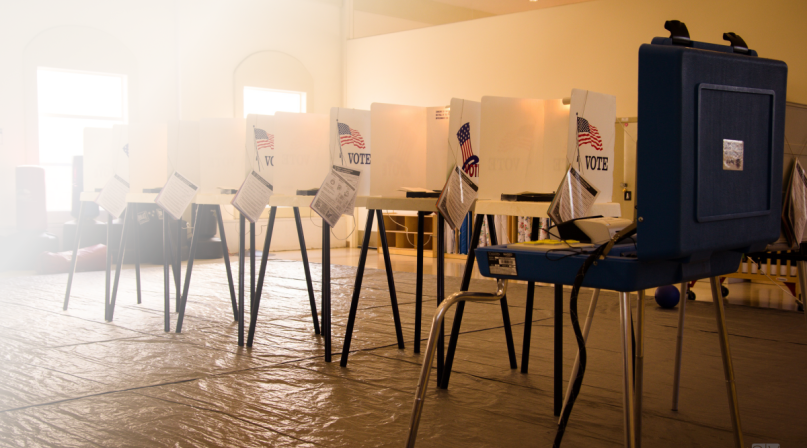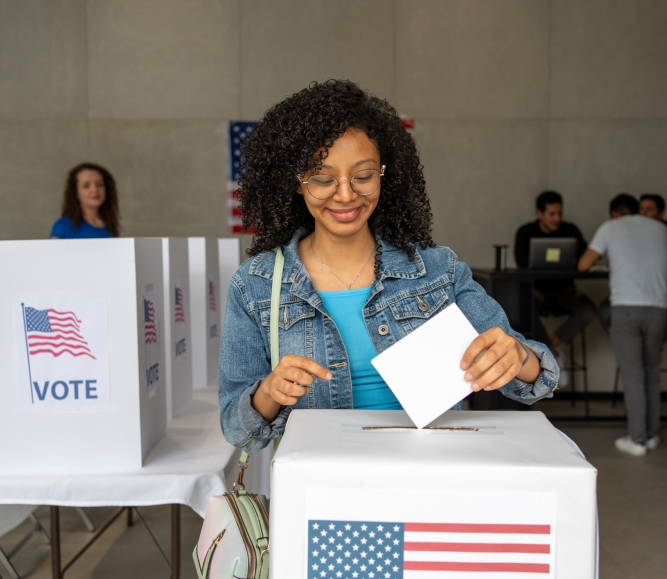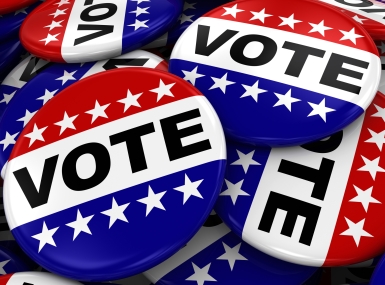Both the Administration and Congress act on 'noncitizen voting:' What this could mean for counties
Author

Paige Mellerio

Emma Conover
Upcoming Events
Related News

Key Takeaways
On January 3, Representative Chip Roy (R-Texas) re-introduced the Safeguard American Voter Eligibility (SAVE) Act (H.R. 22). The SAVE Act passed the U.S. House in the 118th Congress but ultimately was not considered in the U.S. Senate. The SAVE Act is priority legislation for Speaker of the House Mike Johnson (R-La.) and the White House and on April 10, the U.S. House voted 220-208 with 4 Democratic lawmakers voting with all House Republicans to pass the bill and advance it to the U.S. Senate.
On March 25, President Trump issued an Executive Order (Preserving and Protecting the Integrity of American Elections) that directs relevant federal agencies to take steps to require proof of citizenship to vote and other election security measures.
The SAVE Act: An overview
The SAVE Act is an amendment to the National Voter Registration Act (NVRA) of 1993 that would require individuals to prove their citizenship when registering to vote. Citizenship has always been a requirement to vote in federal elections, but the bill would require states to validate a voter’s citizen status with a valid passport, military I.D. with accompanying military service record or photo I.D. with approved document indicating birthplace.
The current federal voter registration requirements outlined by NVRA do not require documentary proof, but rather an attestation of citizenship under penalty of perjury for false claims. The SAVE Act would create new guidelines for vetting voter databases and provide free access to a federal database to confirm a voter’s citizenship status. Criminal penalties would be imposed on election officials who materially assist or successfully register individuals to vote who are unable to show proof of citizenship.
How does this relate to the recent Executive Order on non-citizen voting?
Consideration of the SAVE Act in the U.S. House follows the issuance of Executive Order 14248 (EO), however the proof of citizenship requirements differ slightly between the legislation and the EO.
The EO, requires voters to provide proof of citizenship when registering to vote using federal forms and mandates that ballots must be received by Election Day to be counted. Eighteen states currently only require ballots to be postmarked on or before election day to be accepted. Specifically, the Executive Order instructs:
- The U.S. Election Assistance Commission (EAC), to update available mail voter registration forms to require proof of citizenship
- Most states across the country use a state-specific registration form
- The U.S. Election Assistance Commission (EAC) to revise the Voluntary Voting System Guidelines (VVSG) to decertify voting equipment not backed up paper in a specific way
- While each state sets their own election laws, 11 states and the District of Columbia require voting systems to be full certification to federal VVSG standards and could have to replace existing voting systems
- The U.S. Department of Homeland Security (DHS) to remove non-citizens from state voter rolls and ensure state and local election officials have free access to relevant federal agencies used to verify citizenship
How we got here:
- First introduced in May 2024 by Rep. Roy and 49 Republican cosponsors, the SAVE Act passed in the House with a vote of 221-198 but failed to advance beyond that point. The SAVE Act has been reintroduced in the 119th Congress by Rep. Roy and 53 cosponsors. The full U.S. House voted 220-208 to pass the bill and advance it to the U.S. Senate, however timing for Senate consideration is still uncertain. The bill faces an uphill battle as its passage would require the vote of at least seven Democratic senators to overcome a filibuster.
How does this impact counties?
While states are largely responsible for voter registration processes, county election officials play a role in registering individuals to vote as well as cleaning and vetting voter rolls. Implementing changes included in the SAVE Act could require additional personnel and training for county election officials and poll workers as counties will need to readjust to an in-person voter registration requirement. Significant changes will be required if mail, online registration and registration drives are eliminated. The SAVE Act also means it may be hard for some people to get proper documentation of citizenship, and we may expect an influx of voting-age citizens to apply for valid passports and driver’s licenses.
The SAVE Act does not authorize additional federal funding for states and local governments to implement these new guidelines. Counties urge the U.S. Congress to fund Help America Vote Act (HAVA) election security grants to assist states and counties improve election administration and potentially implement the SAVE Act.
Resource
The County Landscape Project: An Overview of County-Level Election Administration

Related News

2024 Clearinghouse Awards: U.S. Election Assistance Commission recognizes county excellence in election administration
The U.S. Election Assistance Commission (EAC) announced the winners of its 2024 Clearinghouse awards, recognizing 32 counties for their election administration practices during the 2024 election cycle.

County Countdown – April 7, 2025
Every other week, NACo's County Countdown reviews top federal policy advocacy items with an eye towards counties and the intergovernmental partnership. This week features a budget reconciliation update, HHS restructuring and more.

Multi-State Information Sharing and Analysis Center (MS-ISAC) loses federal funding
On March 11, the Cybersecurity and Infrastructure Security Agency (CISA) announced a $10 million cut in funding for the Multi-State Information Sharing and Analysis Center (MS-ISAC), which provides critical local assistance for cybersecurity threat detection and analysis resources and support.